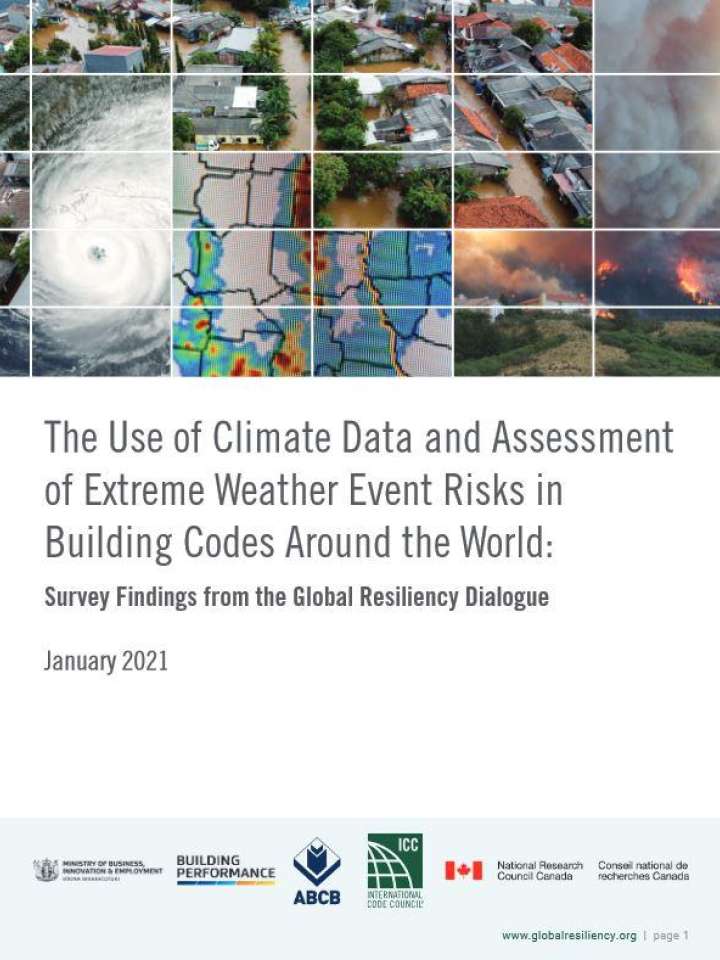The use of climate data and assessment of extreme weather event risks in building codes around the world
This paper is a report of the findings of a survey developed by the founding members of the Global Resiliency Dialogue– the Australian Building Codes Board, the National Research Council of Canada, the New Zealand Ministry of Business, Innovation, and Employment, and the International Code Council (based in the United States).
The findings shared in this paper indicate that the expectation of building resiliency to future weather events is largely based on historical data related to natural hazards, such as flooding, high wind, wildfire, and extreme heat, rather than on predictive data about the hazards that buildings are likely to face in the future. While some codes have begun to integrate forward-looking climate science to define select hazard measurements, these remain the exception with many questions still surrounding how to most effectively integrate appropriate climate science data into building codes. The findings support the work program defined by the Global Resiliency Dialogue and the likely relevance of the international resiliency guidelines that comprise the main deliverable of the group’s work.
Explore further
